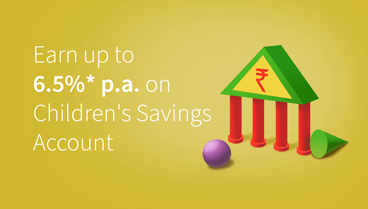The initial public offering is the process by which a private company can go public by sale of its stocks to the general public. It could be a new, young company or an old company which decides to be listed on an exchange and hence goes public.
Companies can raise equity capital with the help of an IPO by issuing new shares to the public, or the existing shareholders can sell their shares to the public without raising any fresh capital.
Why does a company offer an IPO?
- Offering an IPO is a money-making exercise. Every Company requires money; it may be to develop, to increase their business, to enhance the infrastructure, to repay loans, etc.
- Trading stocks in the open market means increased liquidity. It opens the door to employee stock ownership plans like stock options and other compensation plans, which attracts the talents in the cream layer.
- A company going public means that the brand has gained enough success to get its name flashed in the stock exchanges. It is a matter of credibility and pride of any company.
- In a demanding market, a public company can always issue more stocks. This will pave the way for acquisitions and mergers as the stocks can be issued as a part of the deal.
How do IPO works
IPO is regulated by the Securities and Exchange Board of India (SEBI). A company is intending to go for IPO first registers with SEBI. SEBI scrutinize the document submitted by the Company.
After completing all the formalities Company fixes the number of shares to be offered along with the price /price band at which the offer will be made to the public. The investor then applies or subscribe to the shares of the Company. Generally, IPOs are oversubscribed as companies receive more applications than shares offered. In the case of oversubscription, Company does partial allotment to the investors. After shares are issued to the investors in the primary market, it gets listed in the secondary market or stock exchange for trading.
From the investor’s point of view, IPOs are supposed to be undervalued, and they can earn a good profit in a short period. Companies tend to offer IPO at a lower price to attract a large number of investors. This encourages investors to subscribe for an IPO as a profitable investment.
How To Trade IPOs
When a stock goes public, the first day of trading is very volatile. With no trading history or prior stock quotes, no one can be sure of a fair market-based price for the stock. Investors should be patient and wait at least several weeks for a potential base formation.
Benefit of investing in IPO
An investor can invest in an IPO, and you can invest in a company at a low rate as compared to equity. As the companies listed under IPOs are smaller in size, the price that they offer is more economical for the stocks, and you have better chances to earn good returns.
Things you should know before investing
- If you have bought an IPO for the Company, you are exposed to the fortunes of that Company. You bear a direct impact on its success and loss
- It is this asset of your portfolio that has the highest potential to reward the returns. On the flip side, it can sink your investment without a sign. Remember stocks are subjected to the volatility of the markets
- You should know that a company which offers its shares to the public is not indebted to reimburse the capital to the public investors
- It would be best if you weighed up your potential risks and rewards before investing in an IPO. If you are a novice, read up an account from an expert or a wealth management firm. If still in doubt, talk to your financial advisor.
Taxation in IPO
According to income tax rules, capital gains on equities are taxed according to their holding period. "If you sold these shares through the recognized stock exchange and paid STT on the sale transaction, then these gains will be taxable at 15 percent under section 111A of the income tax Act.
Gains from the sale of equity shares and equity mutual funds, if they qualify as Long Term Capital Gain, will be taxed at the rate of 10 percent without indexation benefit if the gains exceed Rs 1 lakh in a fiscal.














